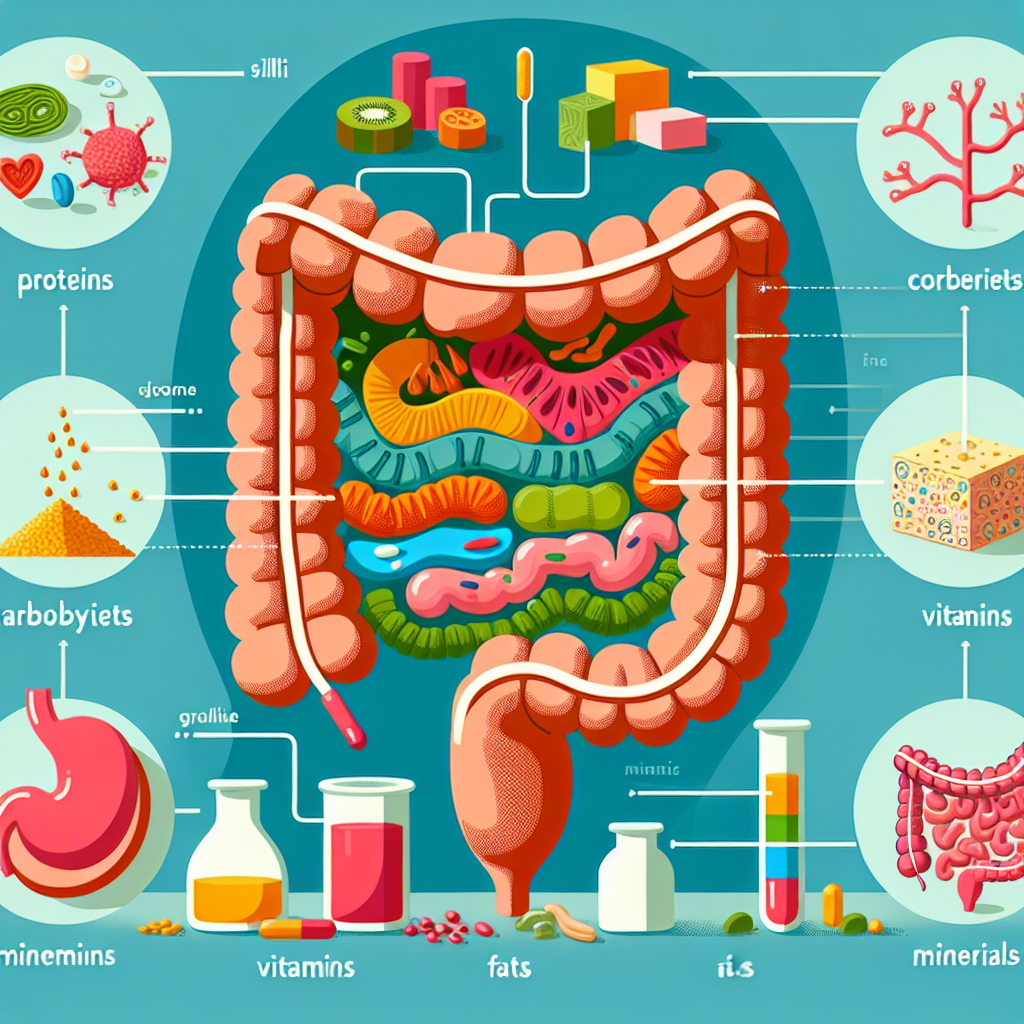Stomach acid, often known as gastric acid, plays a pivotal role in the digestive process, particularly in the absorption of nutrients. The stomach lining secretes hydrochloric acid (HCl), which creates an acidic environment necessary for the activation of digestive enzymes and the absorption of essential nutrients. This article aims to explore the complex relationship between stomach acid levels and nutrient absorption, providing insights into the implications for overall health.
The Role of Stomach Acid in Digestion
Digestion is a finely tuned process that converts the food we eat into energy and building blocks for the body. Stomach acid initiates this process by breaking down food particles, sterilizing ingested food to prevent bacterial overgrowth, and activating pepsinogen to pepsin — an enzyme that digests proteins. It also helps in the absorption of various vitamins and minerals, such as vitamin B12, calcium, iron, and magnesium, which are crucial for maintaining bone health, among other functions.
Vitamin B12 Absorption
Vitamin B12 absorption is particularly dependent on gastric acid, which releases it from food. Without sufficient acid levels, vitamin B12 remains bound to proteins, making it unavailable for absorption, potentially leading to deficiency with symptoms ranging from fatigue to neurological issues.
Iron and Calcium Utilization
Iron absorption in the small intestine requires a low pH environment, which helps convert dietary iron to its absorbable ferrous form. Similarly, calcium absorption is facilitated by an acidic stomach environment, linking adequate stomach acid levels with the prevention of conditions like osteoporosis.
Impact of Hypochlorhydria on Nutrient Absorption
Hypochlorhydria, a condition characterized by low stomach acid levels, can impede the body’s ability to absorb nutrients effectively, leading to deficiencies. This condition may result from factors such as aging, chronic gastritis, or the long-term use of proton pump inhibitors (PPIs) for acid reflux management.
Symptoms of nutrient deficiencies due to hypochlorhydria can manifest in various ways, including anemia from iron deficiency, impaired brain health due to lack of vitamin B12, and weakened bones from insufficient calcium absorption.
To better understand the nuances of managing hypochlorhydria and its impact on nutrient absorption, consider exploring dietary strategies to manage hyperacidity.
Hyperacidity and Nutrient Absorption
On the opposite spectrum, hyperacidity or high stomach acid levels can also disrupt nutrient absorption. Chronic hyperacidity can lead to gastroesophageal reflux disease (GERD) and peptic ulcers, impairing the digestive tract’s integrity and function.
A balanced approach to managing stomach acid levels is essential for optimal nutrient absorption. For those struggling with gastritis or ulcers, how to ease symptoms of gastritis naturally provides valuable insights into natural remedies that can support digestive health.
The Synergy of Digestive Components
The digestive system operates in a synergistic manner, where stomach acid, digestive enzymes, gut flora, and gut integrity all contribute to nutrient absorption. Inadequate levels of digestive enzymes, for instance, can exacerbate the challenges of low stomach acid. To learn more about the interplay between these components, the article role of digestive enzymes in food allergies and intolerances offers an in-depth look.
External Factors Affecting Stomach Acid Levels
Several external factors can influence stomach acid production, from dietary habits to stress levels. Consuming a balanced diet rich in fiber, probiotics, and adequate protein can support healthy acid levels. Additionally, managing stress through techniques like mindfulness meditation has been shown to positively affect digestive health.
Diagnostic and Treatment Strategies
Diagnosing abnormal stomach acid levels typically involves medical evaluation, including history taking, physical examination, and sometimes diagnostic tests like endoscopy or pH monitoring. Treatment strategies vary based on the underlying cause but may include dietary adjustments, lifestyle changes, medication, or in some cases, surgery.
For those interested in exploring the benefits of digestive health support groups as part of their treatment strategy, the following resource provides helpful information: The Benefits of Digestive Health Support Groups.
Enhancing Nutrient Absorption
Here are some niche resources that provide additional support for enhancing nutrient absorption through the management of stomach acid levels:
- National Institute of Diabetes and Digestive and Kidney Diseases (NIDDK) – Offers comprehensive information on digestive diseases and how they affect nutrient absorption.
- International Foundation for Gastrointestinal Disorders – Provides resources and support for individuals with acid-related gastrointestinal issues.
- American Society for Nutrition – Features research and guidelines on nutrition and its role in digestive health.
- The Gut Health Protocol – A niche resource dedicated to gut health and the restoration of proper stomach acid levels.
Conclusion
Adequate stomach acid levels are essential for the efficient breakdown and absorption of nutrients. Both low and high levels can lead to significant health issues, underscoring the need for a balanced approach to digestive health. By understanding the factors that impact stomach acid production and taking steps to manage these factors, individuals can support their overall health and well-being.
Incorporating lifestyle modifications, appropriate dietary choices, and stress management techniques can go a long way in maintaining optimal stomach acid levels and ensuring the proper absorption of vital nutrients. Through education, proactive management, and support, individuals can navigate the complexities of digestive health and enhance their quality of life.



